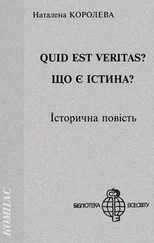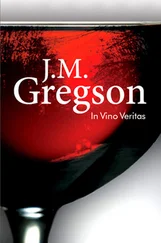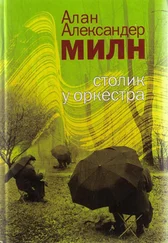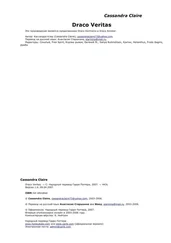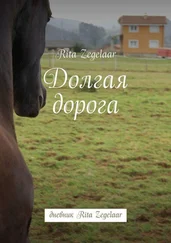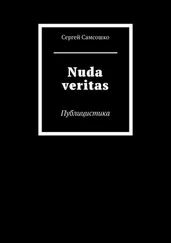Rita Monaldi - Veritas
Здесь есть возможность читать онлайн «Rita Monaldi - Veritas» весь текст электронной книги совершенно бесплатно (целиком полную версию без сокращений). В некоторых случаях можно слушать аудио, скачать через торрент в формате fb2 и присутствует краткое содержание. Жанр: Исторический детектив, на английском языке. Описание произведения, (предисловие) а так же отзывы посетителей доступны на портале библиотеки ЛибКат.
- Название:Veritas
- Автор:
- Жанр:
- Год:неизвестен
- ISBN:нет данных
- Рейтинг книги:3 / 5. Голосов: 1
-
Избранное:Добавить в избранное
- Отзывы:
-
Ваша оценка:
- 60
- 1
- 2
- 3
- 4
- 5
Veritas: краткое содержание, описание и аннотация
Предлагаем к чтению аннотацию, описание, краткое содержание или предисловие (зависит от того, что написал сам автор книги «Veritas»). Если вы не нашли необходимую информацию о книге — напишите в комментариях, мы постараемся отыскать её.
Veritas — читать онлайн бесплатно полную книгу (весь текст) целиком
Ниже представлен текст книги, разбитый по страницам. Система сохранения места последней прочитанной страницы, позволяет с удобством читать онлайн бесплатно книгу «Veritas», без необходимости каждый раз заново искать на чём Вы остановились. Поставьте закладку, и сможете в любой момент перейти на страницу, на которой закончили чтение.
Интервал:
Закладка:
My son gradually dozed off and I secured him to the cart with a rope, so that he would not fall off. Simonis drove with a firm and methodical hand. Strangely, he kept silent. He seemed absorbed.
In the open country, as we headed towards the plain of Simmering, there was no noise but the rattling of the cartwheels and the clatter of the mule’s hooves.
All things considered, I reflected with a smile as I gazed absently at the monotonous panorama and yielded to the drowsiness of the middle of the day, on board the cart were three children: my little son; myself, a child in stature; and Simonis, who had remained an infant in mental capacity.
“We’re here, Signor Master.”
I woke up numb and aching where the tools had pressed into me while I dozed. We were in a large abandoned courtyard. While Simonis and the little boy got down and began to unload the tools, I looked around. We had entered via a large gateway; looking back I could make out the road we must have travelled along through the open country.
“We’re inside the Place with No Name,” stated the Greek, observing my still glazed eyes. “Through that arch is the entrance to the main building.”
In front of us an archway led to a low outbuilding and gave onto another open area beyond. To our right, a little door in the wall revealed a spiral staircase. Looking upwards to the left I could see castellated walls and, to my surprise, a hexagonal tower whose roof was adorned with curious pinnacles. Everything — the tower, the gateway, the arch, the merlons — was in bright white stone such as I had never seen, and which dazzled my eyes, still heavy with sleep.
“This leads down to the cellars,” announced my little apprentice.
He had been running around exploring things and had stopped in front of a blanched semicircular keep of unexpected shape, actually a kind of apse, from which there extended a long construction that could be glimpsed through the arch and which was apparently the main building.
“Good,” I answered, since one always starts cleaning the flues from the cellars.
I got down from the cart and, like Simonis, armed myself with tools. Then we joined my son.
We crossed the threshold of what did in fact appear to be the entrance to a cellar and then descended a staircase. The ceiling was low, with a barrel vault, and the walls were imposing. A door at the bottom led into a great space that was completely empty: rather than abandoned, it looked incomplete, as if they had never finished building it.
While my two assistants groped the walls looking for the opening of a flue, I went ahead. Dazzled by the light outside, my pupils had not yet adjusted to the growing darkness and suddenly I found my nose pressed up against something cold, heavy and greasy. Instinctively I rubbed my nose and looked at my fingertips: they were red. Then I screwed up my eyes and peered.
It was dangling from a rope that hung from the ceiling and was swaying gently from where I had knocked it. It was the trunk of a bleeding corpse, naked, legless, headless and armless, and blackish blood was trickling from it onto the floor. It was attached to the rope by a great rusty piece of iron that pierced the body right through. It must have been flayed alive, I thought in a flash of lucid horror, since those parts that were not dripping blood were bright red, revealing nerves and bands of whitish fat.
Appalled by what I had seen, while my chimney-sweep’s tools fell to the floor in a jangling clatter, with all the breath I had in my body I yelled to Simonis to run for it, bearing my son to safety without waiting for me — and then I fled myself.
I saw Simonis obeying me with the speed of lightning. Without any idea why, he lifted the little boy onto his shoulders and pelted away on his long legs. I hoped I would make it as well, even though my own legs were far from long. My hopes proved vain. I emerged into the sunlight and saw Simonis already disappearing over the horizon, lashing wildly at the mule — and then I heard it.
It was not very different from the way I had imagined it a thousand times: a tremendous bellowing, which makes men and beasts and all things tremble.
I had no time to realise what direction it came from: a powerful paw sweep knocked me sideways. I tumbled to the ground, fortunately well away, and as I rolled I heard the roar again. It was then that I saw it approaching: Prince of Terror, Mauler of Flesh; even as I recognised the demoniacal eyes, the lurid mane, the bloody canines, I was running for my life, stumbling at every pace, moaning with terror and unable to believe my eyes. In that lonely place outside Vienna, on that frosty crisp day of early spring, in the cold north above the Alps, I was being chased by a lion.
I dashed into the little doorway immediately to my left, and with the speed of lightning I pelted down the spiral staircase. I found myself in a little open area. I heard the beast faltering for just a second or two and then come roaring after me, and I made my way into a large roofless building in search of some means of escape.
I thought I was in the middle of an incomprehensible nightmare when I suddenly found myself in front of. . a sailing ship.
It was smaller than usual but unmistakeable. And that was not all: it was in the shape of a bird of prey, complete with head and beak, wings and tail fins, with a flag attached to these latter.
Certain now that I must be the victim of some envious demon and his lethal conjuring tricks, I leaped onto the feathery tail of that absurd vessel, with the desperate idea of yanking the flagpole from its place and using it as a weapon to ward off the lion, whose roar continued to set my flesh and all around me trembling.
Unfortunately, despite my chimney-sweep’s agility and slim build, my age told against me. The animal was faster: in a few bounds it had reached me and launched itself with a final pounce onto its prey.
But it failed. It had not managed to leap high enough to catch me. Yielding perhaps to the lion’s assaults, the feathered ship began to sway and its oscillations grew wider and wider. The lion tried again with a higher leap. It was no use. The more the lion leaped, the smaller it seemed to become. While I clung with all my strength to the wooden feathers, the ship was now pitching and rolling dizzily, and its bizarre sail — a kind of dome that formed the back of the bird — twisted and swelled with cavernous gulps of air.
The world was whirling frantically around me and my terror-distorted senses told me that the absurd carved bird was taking flight.
It was then that I heard someone declaim threateningly in the Teutonic idiom:
“Bad Mustafa! Straight to bed with no supper!”
His name was Frosch, he stank of wine and the lion crouched tranquilly at his feet.
He explained that the animal loved the company of men and so, whenever anyone turned up round those parts, it had the bad habit of greeting them with roars of joy and playful leaps in its desire to lick them.
The Place with No Name, known as Neugebäu, was not just any place, he clarified. It had been built about a century and a half ago, by His Caesarean Majesty of honoured memory Emperor Maximilian II, and the only thing it retained today of its former splendour was the imperial menagerie, which was rich in exotic animals, especially wild beasts. As he spoke, he stroked the enormous lion, now fortunately listless and decrepit, which just a few moments before had seemed to me an invincible brute.
“Bad Mustafa, you’ve been bad!” Frosch kept scolding it, while the lion docilely let him put a chain round its neck and gazed sidelong at me. “I’m sorry that he scared you so,” he finally apologised.
Frosch was the keeper of the menagerie of the Place with No Name. He looked after the lions, but also other animals. While he introduced himself, my legs were still trembling like reeds. Frosch offered me a sip from his flask, which he swigged from frequently. I refused: if I thought back to the bleeding corpse I might well throw up.
Читать дальшеИнтервал:
Закладка:
Похожие книги на «Veritas»
Представляем Вашему вниманию похожие книги на «Veritas» списком для выбора. Мы отобрали схожую по названию и смыслу литературу в надежде предоставить читателям больше вариантов отыскать новые, интересные, ещё непрочитанные произведения.
Обсуждение, отзывы о книге «Veritas» и просто собственные мнения читателей. Оставьте ваши комментарии, напишите, что Вы думаете о произведении, его смысле или главных героях. Укажите что конкретно понравилось, а что нет, и почему Вы так считаете.

